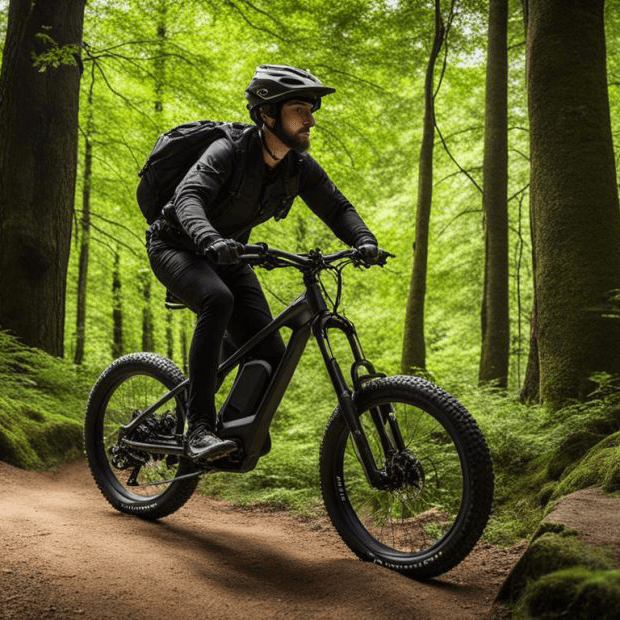Batteries for E-mobility
The batteries that get you going!
E-mobility, or electric mobility, is transforming the way we move by providing cleaner, more efficient transportation options. From electric vehicles (EVs) and e-bikes to electric scooters and public transit, batteries are the backbone of this revolution. They store the energy needed to power electric motors, making them central to the performance, range, and efficiency of e-mobility solutions. This article explores the critical role batteries play in e-mobility, highlighting their benefits, challenges, and future developments.
Types of Batteries Used in E-Mobility
E-mobility relies on a few key types of batteries, each suited to different applications:
Lithium-Ion (Li-ion) Batteries: Li-ion batteries dominate the e-mobility sector due to their high energy density, long life, and lightweight properties. They are widely used in electric cars, e-bikes, scooters, and other personal electric vehicles, offering a good balance between performance, range, and size.
Nickel-Metal Hydride (NiMH) Batteries: NiMH batteries are used in some hybrid electric vehicles (HEVs) and older electric models. While they are less energy-dense than Li-ion batteries, they are durable and more cost-effective, making them suitable for specific e-mobility applications.
Solid-State Batteries: An emerging technology, solid-state batteries promise even higher energy densities, faster charging times, and improved safety compared to Li-ion batteries. Though not yet widely available, they are seen as the future of e-mobility battery technology.
Benefits of Batteries in E-Mobility
Batteries are crucial to the success of e-mobility, offering several significant benefits:
Environmental Sustainability: E-mobility powered by batteries helps reduce greenhouse gas emissions, air pollution, and reliance on fossil fuels. This contributes to cleaner cities and a lower carbon footprint, aligning with global efforts to combat climate change.
Energy Efficiency: Electric motors powered by batteries are more efficient than internal combustion engines, converting a higher percentage of energy from the battery into movement. This efficiency reduces overall energy consumption and operating costs.
Quiet Operation: Battery-powered vehicles operate much more quietly than their gasoline or diesel counterparts, reducing noise pollution in urban areas and creating a more pleasant environment for residents.
Cost Savings: While the upfront cost of electric vehicles can be higher, the lower operating costs, including cheaper "fuel" (electricity) and reduced maintenance expenses, offer significant savings over time. Batteries enable these cost efficiencies by powering electric motors that have fewer moving parts and require less maintenance.
Enerpower batteries & E-Mobility
ENERpower has become a leading European supplier with our complete solutions for the conversion of bicycles to E-bikes.
In addition to our high-quality Made-in-Germany batteries, we rely on notable manufacturers of additional components such as Bafangand Tongsheng(motor-systems), Modiaryand Fuyuang(chargers).
In our eBike batteries we use only Li-Ion cells of well-known manufacturers such as Samsung SDI, Panasonic (Sanyo), LG Chem and Sony (Murata). With high-quality construction components, we ensure high performance, lighter weight and low internal resistance. Batteries that are used in so-called ELVs (Electric Light Vehicles) must pass demanding conditions. The batteries are usually shaken and jolted while driving, they often have to perform in a variety of weather conditions and are mounted and dismounted. Therefore, the quality of production plays a special role for longevity, but also for safety.
In addition to manufacturing with high-quality battery cells, we use high-quality battery management systems (BMS), which we sometimes design ourselves. We use pure nickel and copper as welding material. These provide a low resistance and high conductivity of electricity.
We always manufacture the batteries in cell holders made of plastic, which in addition to the better fastening, also ensure a cavity between the battery cells. This allows the batteries to better direct the developed heat to the surface, because the accumulation of heat reduces the life of battery cells significantly.
General Information
- High Quality - Made in Germany
- Assembling with high quality Li-Ion cells 18650, predominantly with Samsung SDI
- BMS with an integrated Balancer
- BMS with protection against overcharge, over-discharge (temperature monitoring) switch-off button to save energy
- Almost 20% lighter than bateries with Li-Pol cells
- Rechargeable – even after 300 charging cycles 80% of the original capacity is still available.
- No memory-effect – charge the battery whenever you want
- Environment friendly according to EU-Guidelines 2002/95/EG (RoHS)





